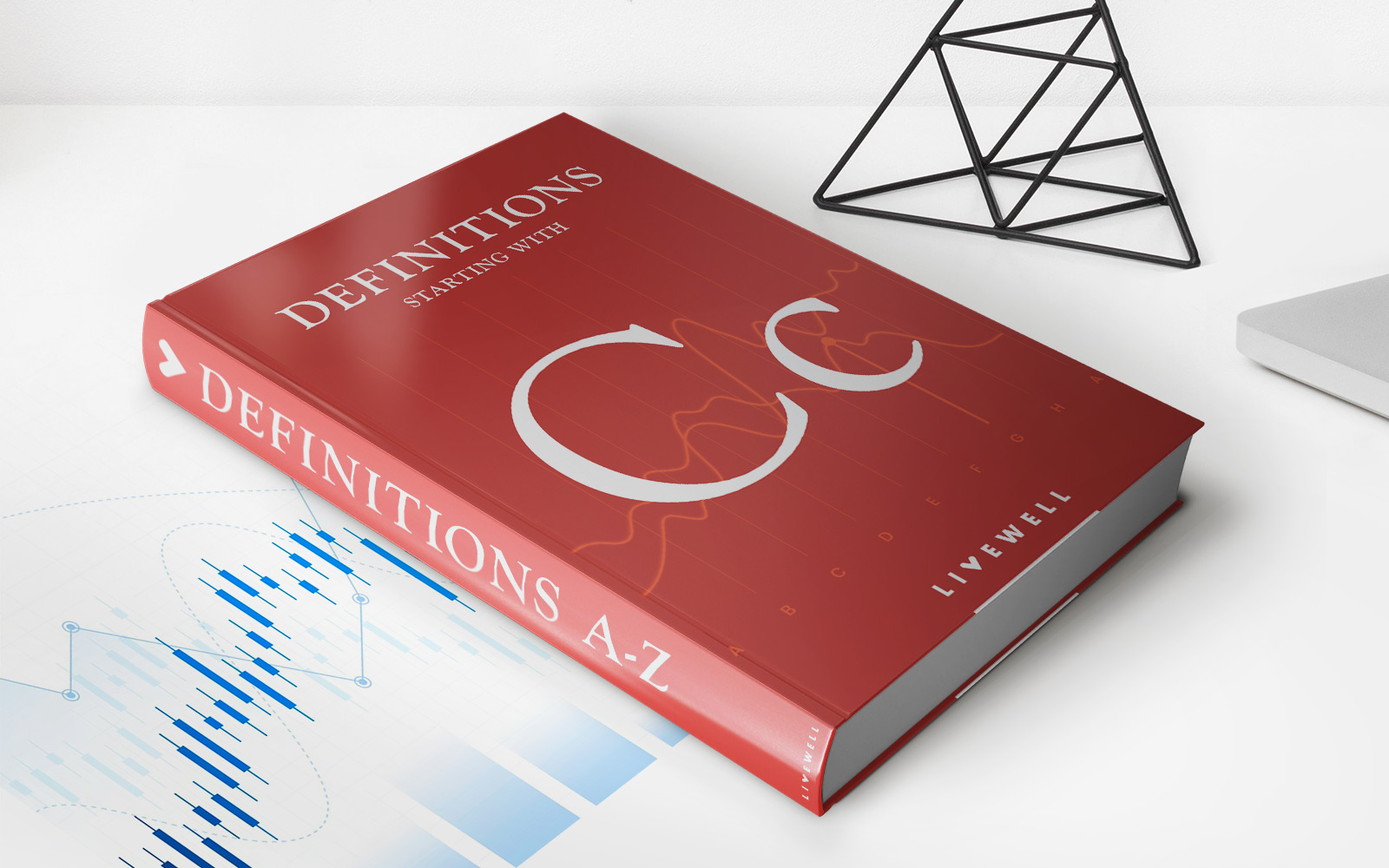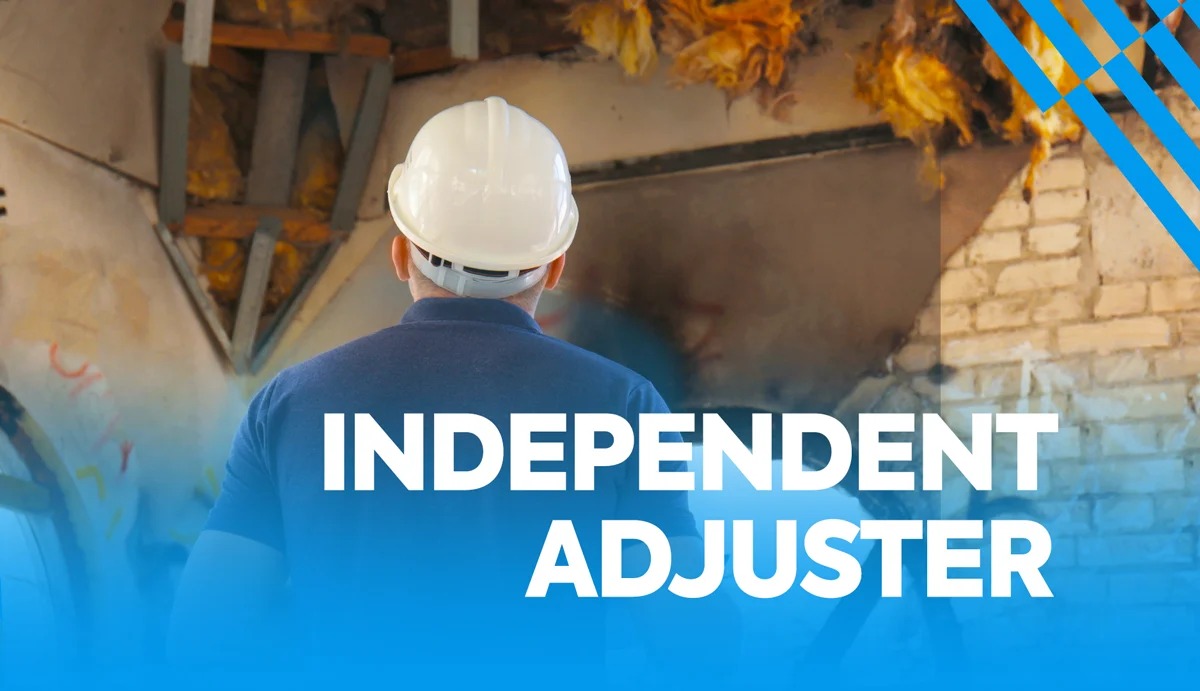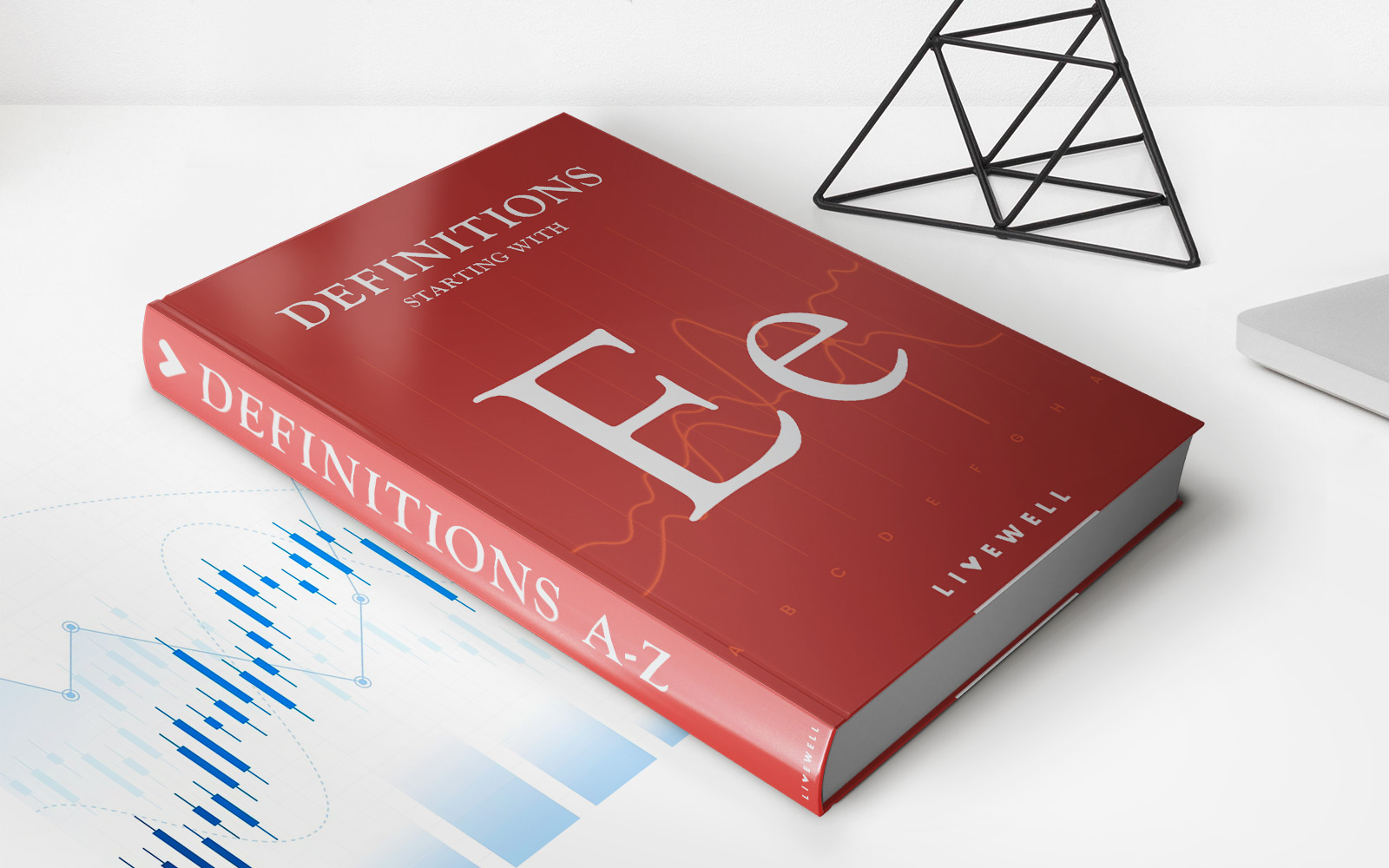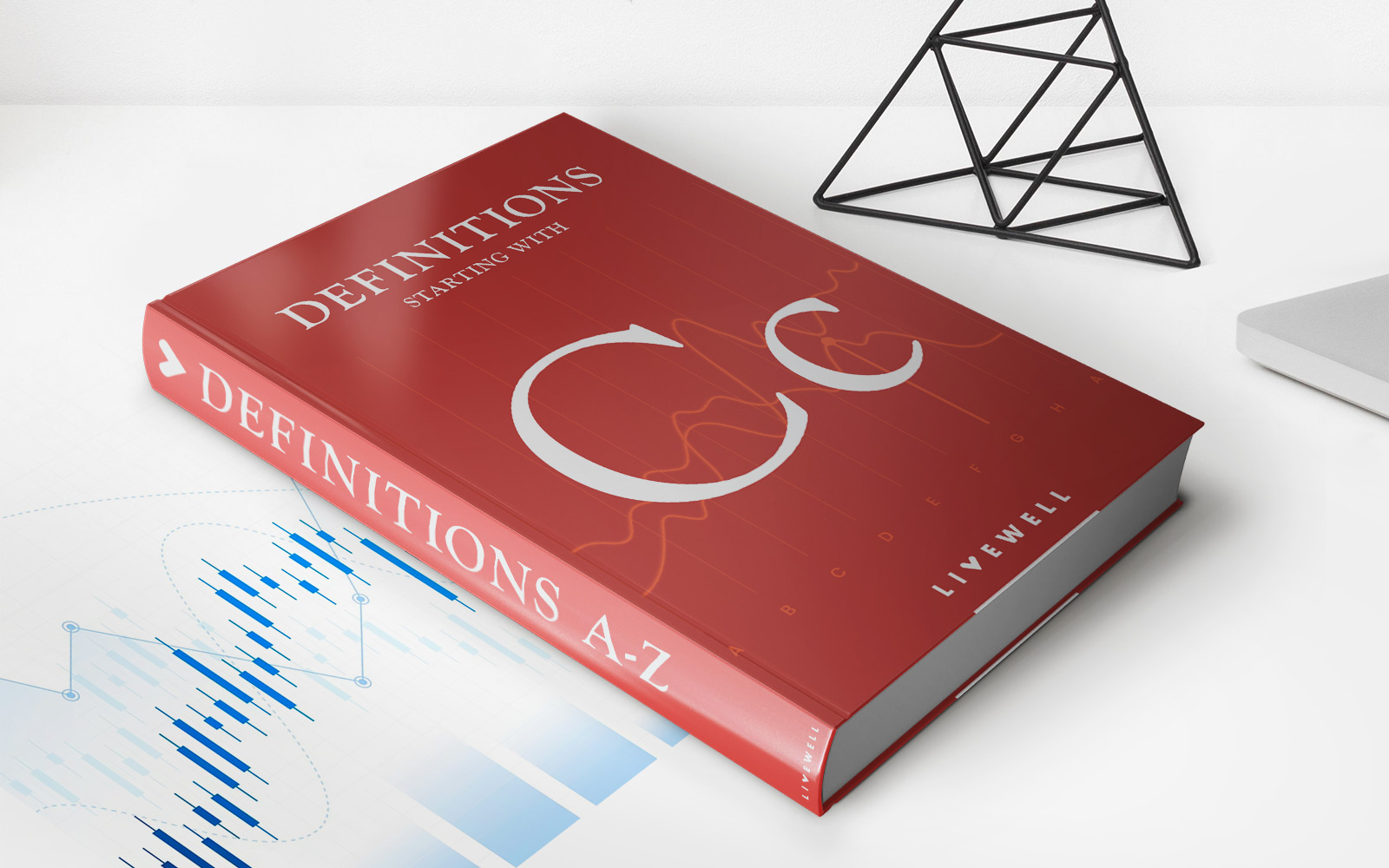Home>Finance>How To Become An Independent Insurance Adjuster
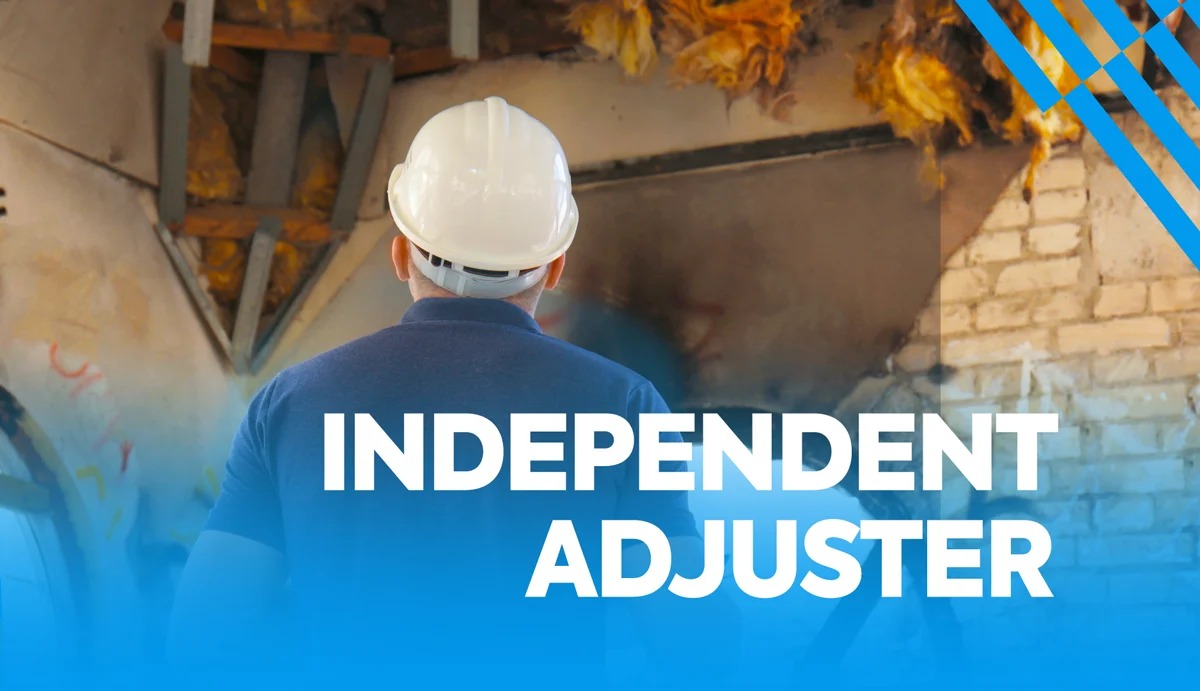

Finance
How To Become An Independent Insurance Adjuster
Modified: December 30, 2023
Learn how to become an independent insurance adjuster in the finance industry. Gain knowledge and skills to handle claims and provide financial support.
(Many of the links in this article redirect to a specific reviewed product. Your purchase of these products through affiliate links helps to generate commission for LiveWell, at no extra cost. Learn more)
Table of Contents
- Introduction
- What is an Independent Insurance Adjuster?
- Roles and Responsibilities
- Steps to Becoming an Independent Insurance Adjuster
- Education and Training Requirements
- State Licensing Requirements
- Specialized Certifications
- Building Experience and Developing Skills
- Networking and Building Professional Relationships
- Finding Employment Opportunities
- Pros and Cons of Being an Independent Insurance Adjuster
- Conclusion
Introduction
Insurance plays a crucial role in our lives, providing financial protection and peace of mind in times of uncertainty. When accidents occur or disasters strike, insurance companies rely on independent insurance adjusters to assess damages, investigate claims, and facilitate fair settlements. If you have a keen eye for detail, excellent communication skills, and a passion for helping others, becoming an independent insurance adjuster might be your ideal career path.
An independent insurance adjuster is an individual who works on behalf of insurance companies or as a freelance professional, handling claims and evaluating the extent of damage. These adjusters are responsible for investigating accidents, analyzing policies, assessing losses, and negotiating settlement offers.
In this article, we will explore the roles and responsibilities of an independent insurance adjuster, the steps to becoming one, the educational and training requirements, state licensing requirements, specialized certifications, and how to build experience and develop the necessary skills. We will also discuss the importance of networking, finding employment opportunities, and the pros and cons of pursuing a career as an independent insurance adjuster.
Emerging as an independent insurance adjuster requires a combination of knowledge, skills, experience, and a deep understanding of the insurance industry. It is a challenging yet rewarding profession that offers flexibility, the potential for high earnings, and the opportunity to make a positive impact on people’s lives during difficult times.
Now that we have laid the foundation, let’s delve deeper into the world of independent insurance adjusting and explore the steps you need to take to embark on this career journey.
What is an Independent Insurance Adjuster?
An independent insurance adjuster is a professional who investigates insurance claims on behalf of insurance companies or as a self-employed contractor. Their primary role is to evaluate the validity of claims, determine the extent of damage or loss, and negotiate settlements between policyholders and insurance providers.
When an insurance claim is filed, whether for property damage, automobile accidents, or personal injury, an independent insurance adjuster is assigned to assess the situation objectively. They gather information, such as photographs, statements from involved parties, police reports, medical records, and other relevant documents to determine the cause and scope of the loss.
Once they have collected all the necessary information, independent insurance adjusters analyze policy terms and conditions to determine whether the claim falls within the coverage limits. They evaluate the extent of the damage or injury, considering factors such as repair costs, medical expenses, and potential loss of income. Based on their findings, they calculate the appropriate settlement amount within the bounds of the insurance policy.
Independent insurance adjusters must possess excellent communication skills, as much of their work involves interacting with policyholders, witnesses, legal representatives, and other professionals involved in the claim process. They must explain the assessment findings, negotiate settlements, and provide guidance and support to policyholders throughout the claims process.
Unlike staff adjusters, who work directly for insurance companies, independent insurance adjusters have the option to work on a freelance basis. This offers them the freedom to choose their own projects, negotiate their rates, and have flexibility in their work hours. However, it also means they are responsible for finding their own clients and managing their business operations.
The role of an independent insurance adjuster varies depending on the type of claims they handle. Some may specialize in property and casualty claims, such as fire or weather-related damages, while others may focus on auto accident claims or workers’ compensation cases. Specialized expertise in specific areas allows adjusters to provide a higher level of expertise and efficiency in handling claims.
Overall, independent insurance adjusters play a crucial role in ensuring that insurance claims are investigated thoroughly and settled fairly. Their expertise is vital in facilitating the resolution of claims and providing support to policyholders during challenging times.
Roles and Responsibilities
As an independent insurance adjuster, you will have a diverse range of roles and responsibilities that are essential for effectively handling insurance claims. Here are some key responsibilities you can expect to fulfill:
- Evaluating Claims: Your primary responsibility is to assess the validity of insurance claims. You will investigate accidents, gather relevant information, and analyze policy terms to determine coverage eligibility.
- Witness Interviews: Conducting interviews with policyholders, witnesses, and involved parties is an important part of the claims investigation process. You will gather statements, collect evidence, and document crucial details for accurate claim assessment.
- Damage Assessment: Determine the extent of damage or loss by inspecting the affected property, vehicle, or premises. You will assess repair costs, property values, and medical expenses to estimate the appropriate settlement amount.
- Policy Analysis: Carefully review insurance policies to understand the coverage limits, exclusions, and conditions. This analysis helps in determining the scope of coverage and establishing fair settlements within policy terms.
- Negotiation: Engage in negotiations with policyholders, lawyers, and other parties involved in the claims process. Your goal is to reach a fair settlement that satisfies all parties while adhering to policy guidelines.
- Documentation and Reporting: As an adjuster, you will be responsible for maintaining accurate records of investigations, interviews, inspections, and settlement agreements. Prepare detailed reports to present your findings to insurance companies and other stakeholders.
- Customer Service: Provide assistance and guidance to policyholders throughout the claims process. Address their concerns, answer queries, and ensure a smooth and satisfactory experience for all parties involved.
- Legal Compliance: Adhere to industry regulations, ethical guidelines, and state laws governing insurance claims. Conduct your work in a manner that upholds professionalism and integrity.
These responsibilities require a combination of technical skills, such as claim assessment and policy analysis, as well as interpersonal skills, such as communication and negotiation. As an independent insurance adjuster, you must be detail-oriented, empathetic, and able to navigate complex situations with professionalism and tact.
Now that we understand the primary roles and responsibilities of an independent insurance adjuster, let’s explore the steps you need to take to become one.
Steps to Becoming an Independent Insurance Adjuster
If you aspire to become an independent insurance adjuster, there are several steps you can take to kick-start your career in this field. While the specific requirements may vary by state and employer, the following general steps will give you a solid foundation:
- Educational Background: Obtain a high school diploma or GED as a minimum educational requirement. Although a college degree is not always mandatory, having a degree in fields like insurance, finance, or business can provide a competitive edge and a deeper understanding of the industry.
- Gain Insurance Knowledge: Familiarize yourself with the insurance industry by taking courses, earning certifications, or participating in insurance-related programs. This will help you develop a strong understanding of insurance policies, claims processes, and industry regulations.
- Complete Training Programs: Enroll in training programs specific to insurance adjusting. Many organizations and institutions offer comprehensive training programs that cover essential skills, techniques, and legal aspects of the profession.
- State Licensing: Research the licensing requirements in the state where you intend to work as an independent insurance adjuster. Each state has its own licensing regulations, including pre-licensing coursework, examinations, and background checks.
- Pass Licensing Examination: Study and prepare for the state licensing examination. The exam typically assesses your knowledge of insurance regulations, policies, and claims handling procedures. Passing the exam is a prerequisite to becoming a licensed adjuster.
- Obtain State License: Apply for and obtain the required state adjuster’s license upon successfully passing the examination. The license is essential for legally operating as an independent insurance adjuster in the specific state.
- Gain Work Experience: Seek out opportunities to gain practical experience in the insurance industry. This can include working as a staff adjuster, interning at an insurance company, or volunteering for insurance-related projects. Building a solid foundation of hands-on experience will enhance your credibility and marketability as an independent adjuster.
- Specialized Certifications: Consider earning specialized certifications to demonstrate expertise in specific areas of insurance adjusting. Certifications such as property and casualty adjustment, auto claims handling, or workers’ compensation adjustment can enhance your skills and appeal to potential employers.
- Network and Build Relationships: Establish connections within the insurance industry by attending conferences, joining professional organizations, and participating in industry events. Networking can open doors to job opportunities and mentorship that can accelerate your career growth as an independent insurance adjuster.
- Launch Your Career: Once you have completed the necessary education, training, and licensing requirements, start looking for job opportunities or consider launching your own independent adjusting firm. Utilize job boards, industry contacts, and online platforms to find employment or secure clients.
By following these steps and continuously honing your skills and knowledge, you can embark on a successful career as an independent insurance adjuster. Remember to stay updated with industry trends, regulations, and best practices to remain competitive and provide the highest level of service to your clients.
Next, let’s explore the educational and training requirements to become an independent insurance adjuster.
Education and Training Requirements
While there is no specific degree requirement to become an independent insurance adjuster, having a solid educational background can greatly benefit your career prospects in this field. Here are the education and training requirements to consider:
1. High School Diploma or GED: A high school diploma or General Education Development (GED) certificate is typically the minimum educational requirement to enter the insurance industry. It provides a foundation of basic knowledge and demonstrates your commitment to education.
2. College Degree: While not mandatory, earning a college degree can enhance your understanding of insurance concepts and boost your professional credibility. Degrees in fields such as insurance, finance, business, or related areas can provide you with a competitive advantage during job applications.
3. Insurance Courses: Taking insurance-related courses can help you gain valuable knowledge and skills relevant to the industry. Many universities, vocational schools, and online platforms offer courses in claims adjustment, property and casualty insurance, liability assessment, and insurance regulations.
4. Training Programs: Participating in training programs specifically designed for insurance adjusters can provide you with comprehensive knowledge and practical skills required for the job. These programs cover topics such as claims investigation, policy interpretation, negotiation techniques, and claims handling best practices.
5. Continuing Education: The field of insurance is constantly evolving, with new regulations, technologies, and industry trends emerging. As an insurance adjuster, it is important to stay updated with the latest developments. You can achieve this through continuing education courses, webinars, seminars, and industry conferences.
While formal education and training lay the foundation, hands-on experience is equally important. Practical experience allows you to apply the knowledge gained and build critical skills in claims assessment, investigation, negotiation, and customer service. Consider internships, entry-level positions, or volunteer opportunities to gain practical experience in the insurance industry.
Remember, different states and countries may have varying requirements for becoming an independent insurance adjuster. It is essential to research and understand the specific licensing and educational requirements of the jurisdiction in which you plan to practice.
Next, we will explore the state licensing requirements for independent insurance adjusters, which play a crucial role in starting your career in this field.
State Licensing Requirements
State licensing is a critical step in becoming an independent insurance adjuster as it ensures that professionals in this field meet the necessary standards and adhere to the regulations set forth by the respective state insurance departments. While the specific requirements may vary from state to state, here are the general steps involved in obtaining a license:
1. Research State Regulations: Begin by researching the licensing requirements specific to the state where you plan to operate as an insurance adjuster. Each state has its own insurance department or regulatory body that sets the guidelines for licensing and oversees the industry.
2. Pre-Licensing Education: Most states require completion of pre-licensing education courses before you can apply for a license. These courses cover topics such as insurance laws, ethics, and claim handling practices. The number of hours required for pre-licensing education varies by state.
3. Exam Preparation: After completing the pre-licensing education, you will need to prepare for and pass the state-adjuster licensing examination. The exam assesses your understanding of insurance regulations, policies, claim procedures, and ethics.
4. State Licensing Exam: Schedule your state licensing exam through the designated testing center. The exam typically consists of multiple-choice questions and requires a passing score to obtain the adjuster’s license.
5. Background Check: Many states require applicants to undergo a background check as part of the licensing process. This ensures that individuals entering the insurance industry have no criminal history or fraudulent activities that would compromise their integrity.
6. License Application: Once you have completed the pre-licensing education, passed the state exam, and cleared the background check, you can submit your application for the adjuster’s license. The application may require documentation, such as proof of education, exam results, personal identification, and fees.
7. Continuing Education: After obtaining your adjuster’s license, it is essential to stay updated with industry developments and maintain your knowledge through continuing education courses. Many states require adjusters to complete a certain number of hours of continuing education within specified timeframes to renew their licenses.
It is important to note that licensing requirements and procedures can change over time. It is crucial to stay informed about any updates or changes in your state’s regulations to ensure compliance and maintain an active license.
Each state may also have specific limitations on the types of claims an adjuster can handle or require additional licensing for certain specialized areas, such as property, casualty, or workers’ compensation. Therefore, it is essential to familiarize yourself with your state’s specific requirements and any additional certifications or licenses that may be necessary.
With a clear understanding of the state licensing requirements, let’s move on to exploring specialized certifications that can further enhance your career as an independent insurance adjuster.
Specialized Certifications
Obtaining specialized certifications in the insurance adjusting field can significantly enhance your knowledge, skills, and credibility as an independent insurance adjuster. These certifications demonstrate your expertise in specific areas and can differentiate you from other professionals in the industry. Here are some notable certifications to consider:
1. Chartered Property Casualty Underwriter (CPCU): Offered by The Institutes, the CPCU designation is widely recognized and considered a premier credential in the property and casualty insurance industry. It covers a comprehensive range of insurance principles, policies, and practices, providing a deep understanding of the field.
2. Associate in Claims (AIC): The AIC certification, also offered by The Institutes, is specifically designed for claims adjusters. It covers essential skills and knowledge related to claims handling, investigation, negotiation, and ethical practices.
3. Workers’ Compensation Claims Professional (WCCP): This certification focuses on workers’ compensation claims and is offered by The American Society of Workers’ Compensation Professionals (AMCOMP). It provides a thorough understanding of the unique complexities of workers’ compensation claims and the related laws and regulations.
4. Auto Damage Appraiser Certification: This certification, offered by organizations such as the International Society of Appraisers (ISA) or the Automotive Management Institute (AMI), focuses specifically on assessing damages and estimating the value of damaged vehicles. It equips adjusters with the skills to accurately evaluate automobile claims.
5. Property and Casualty Adjuster Certification: Many states offer their own certifications specific to property and casualty insurance adjusting. These certifications cover state-specific regulations, claim processes, and industry practices. Examples include the Florida Adjuster License, Texas All-Lines Adjuster License, and California Independent Adjuster License.
6. National Flood Insurance Program (NFIP) Certification: As an adjuster, dealing with flood claims may be a common occurrence. Obtaining the NFIP certification, offered by the Federal Emergency Management Agency (FEMA), equips you with the knowledge and skills necessary to handle flood-related claims effectively.
These are just a few examples of specialized certifications available in the field of insurance adjusting. The specific certifications you pursue may depend on your career goals, areas of interest, and the types of claims you wish to handle.
These certifications not only enhance your credibility but also provide you with valuable insights, industry connections, and ongoing professional development opportunities. They demonstrate your commitment to continuous learning and staying updated on the latest industry trends, regulations, and best practices.
When considering a certification program, research and choose reputable organizations and institutions that are recognized within the insurance industry. Look for programs that align with your career aspirations and offer comprehensive curriculum, experienced instructors, and networking opportunities.
Now that we have explored specialized certifications, let’s move on to discussing the importance of building experience and developing skills as an independent insurance adjuster.
Building Experience and Developing Skills
Building experience and developing essential skills are vital steps in establishing a successful career as an independent insurance adjuster. While education and certifications lay the foundation, practical experience and honing your skills are equally important. Here are some strategies to help you build experience and develop the necessary skills:
1. Gain Practical Experience: Seek opportunities to gain practical experience in the insurance industry. Consider internships, entry-level positions, or volunteer opportunities at insurance companies, claims adjusting firms, or public adjuster offices. This hands-on experience will allow you to apply the knowledge gained through education and certifications in real-world scenarios.
2. Seek Mentorship: Find an experienced adjuster who can guide and mentor you in your career path. Experienced mentors can offer insights, share their knowledge, and provide valuable advice on handling different types of claims and navigating the insurance industry.
3. Continuous Learning: Stay updated with the latest industry trends, regulations, and best practices through continuous learning. Attend workshops, seminars, and conferences related to insurance adjusting and claims handling. Subscribe to industry publications, join professional organizations, and participate in webinars to expand your knowledge base.
4. Improve Communication Skills: As an adjuster, effective communication is crucial. Develop strong communication skills to interact with policyholders, witnesses, legal representatives, and others involved in the claims process. Practice active listening, learn to ask probing questions, and enhance your written and verbal communication abilities.
5. Enhance Negotiation Skills: Negotiation skills are essential for independent insurance adjusters. Invest time in learning negotiation techniques, understanding policy coverage limits, and improving your ability to reach fair and satisfactory settlements. Practice negotiating in different scenarios to develop confidence and expertise in this crucial aspect of claims adjusting.
6. Attention to Detail: Develop strong attention to detail to accurately assess and document damages, estimate costs, and evaluate policy coverage. Paying attention to small details can make a significant difference in accurately assessing claims and providing fair settlements.
7. Utilize Technology: Familiarize yourself with technology and software used in the insurance industry. Utilize claims management systems, document management software, and other tools that help streamline processes and improve efficiency. Stay updated with emerging technologies relevant to claims adjusting.
8. Embrace Continuing Education: Take advantage of continuing education opportunities to enhance your skills and stay up-to-date with industry advancements. Participate in advanced training programs, specialized workshops, or online courses to deepen your knowledge and gain expertise in specific areas of insurance adjusting.
By actively seeking opportunities for experience, continuous learning, and skill development, you can position yourself as a competent and trusted independent insurance adjuster. Through practical experience and the continuous honing of your skills, you will build a solid foundation for a successful and rewarding career in the insurance adjusting industry.
Next, let’s explore the importance of networking and building professional relationships in the field of independent insurance adjusting.
Networking and Building Professional Relationships
In the field of independent insurance adjusting, networking and building professional relationships are essential steps to establishing a successful and thriving career. Here’s why networking is important and how you can develop these valuable connections:
1. Opportunities for Collaboration and Career Advancement: Networking opens doors to collaborative opportunities and career advancement. By building connections with other insurance professionals, you can gain insights into new job opportunities, referrals for projects, and potential partnerships or collaborations.
2. Industry Knowledge and Insights: Connecting with professionals in the insurance industry allows you to tap into their knowledge and stay updated with the latest trends, regulations, and best practices. Networking provides a platform to exchange ideas, share experiences, and learn from industry experts.
3. Mentorship and Guidance: Building professional relationships can lead to mentorship opportunities. Experienced adjusters can guide and support you in your career journey, offering valuable advice, sharing their expertise, and helping you navigate challenges in the field.
4. Career Growth and Development: Networking facilitates professional growth by exposing you to different perspectives and insights. Attending industry conferences, workshops, and events provides access to educational sessions and keynote speakers who can inspire and motivate you to excel in your career.
5. Referrals and Recommendations: Strong professional relationships can lead to referrals and recommendations, which can be instrumental in securing new clients or employment opportunities. When people trust and value your work, they are more likely to refer you to others in need of insurance adjusting services.
6. Online Networking: In addition to in-person interactions, take advantage of online networking platforms such as LinkedIn, insurance industry forums, and social media groups. Engage in discussions, share insights and articles, and connect with professionals in the field. Online networking offers a convenient way to expand your professional network beyond geographical boundaries.
7. Attend Industry Events: Make it a priority to attend industry conferences, seminars, and networking events. These gatherings bring together professionals from different areas of the insurance industry. Engage in conversations, exchange business cards, and follow up with individuals you meet to continue building those connections.
8. Active Participation in Professional Organizations: Joining professional organizations or associations related to insurance adjusting can provide you with valuable networking opportunities. Attend their meetings, join committees, and contribute to discussions to showcase your expertise and build relationships with like-minded professionals.
Building professional relationships takes time and effort, but the benefits are invaluable in the long run. Stay genuine, be proactive in reaching out to others, and cultivate relationships based on mutual respect and support. Remember to reciprocate and offer assistance when possible to strengthen those connections.
Networking is not just about what others can do for you, but also about how you can contribute, collaborate, and support others in the insurance community. By fostering strong professional relationships, you can create a robust network that will help you thrive as an independent insurance adjuster.
Finally, in our next section, we will explore the process of finding employment opportunities as an independent insurance adjuster.
Finding Employment Opportunities
As an independent insurance adjuster, finding employment opportunities is a critical step toward launching your career and gaining experience in the field. Here are some strategies to help you find and secure job opportunities:
1. Job Boards and Online Platforms: Utilize job boards and online platforms specific to the insurance industry. Websites such as Indeed, LinkedIn, and Glassdoor often have listings for insurance adjuster positions. Create a professional profile showcasing your skills and experience, and regularly check for new job postings.
2. Insurance Companies: Research and directly reach out to insurance companies. Many companies have in-house teams of adjusters and may have openings for independent adjusters. Contact their human resources department or claims department to inquire about potential job opportunities.
3. Claims Adjusting Firms: Investigate claims adjusting or independent adjusting firms that handle a variety of insurance claims. These firms often work with independent adjusters on a contract basis. Connect with them, express your interest, and inquire about any available positions or opportunities for collaboration.
4. Networking: Leverage your professional network to find leads and job opportunities. Inform family, friends, former colleagues, and industry contacts about your career aspirations as an independent adjuster. Attend industry conferences, seminars, and insurance-related events to meet professionals who may have connections or know about job openings.
5. Professional Organizations: Joining professional organizations and associations related to insurance adjusting can provide valuable networking opportunities and access to job postings. These organizations often have job boards or career centers where members can find employment opportunities exclusive to the industry.
6. Contracting Companies: Explore opportunities to work as an independent adjuster for contracting companies that provide insurance adjusting services. These companies contract with insurance carriers to handle claims on their behalf. Contact these companies directly to inquire about becoming part of their adjusting team.
7. Public Adjusting Firms: Public adjusters work on behalf of policyholders to maximize their insurance claim settlement. Consider reaching out to public adjusting firms that may have opportunities to collaborate or seek assistance for complex claims. Working as a public adjuster can provide valuable experience and insights into the claims handling process.
8. Insurance Recruiters: Connect with insurance recruiters who specialize in placing adjusters. These professionals have access to job opportunities and industry contacts that can help match you with suitable positions based on your skills and experience. Submit your resume to reputable insurance recruiting agencies and set up job alerts to stay updated on new opportunities.
When applying for jobs, tailor your resume and cover letter to highlight relevant skills, experience, and certifications. Emphasize your ability to work independently, attention to detail, strong communication skills, and problem-solving abilities. Prepare for interviews by researching the company, practicing common interview questions, and showcasing your understanding of the insurance industry and claims adjusting process.
Remember, persistence is key when searching for employment opportunities as an independent insurance adjuster. Stay proactive, follow up on applications, and seize opportunities to showcase your capabilities. With determination and a strong network, you will find rewarding career opportunities in the insurance adjusting field.
Now, let’s move on to discussing the pros and cons of being an independent insurance adjuster.
Pros and Cons of Being an Independent Insurance Adjuster
Before embarking on a career as an independent insurance adjuster, it is important to consider the advantages and disadvantages associated with this profession. Here are some key pros and cons:
Pros:
- Flexibility: One of the major advantages of being an independent insurance adjuster is the flexibility it offers. You have the freedom to choose your own projects, set your own schedule, and work remotely if desired. This flexibility allows for a better work-life balance and can accommodate personal commitments.
- Potential for High Earnings: Independent insurance adjusters often have the potential to earn higher incomes compared to staff adjusters. As a freelancer, you can negotiate your own rates for each project based on your expertise and the complexity of the claims. Additionally, the more experience and skills you develop, the higher the earning potential.
- Varied Work: As an independent adjuster, you have the opportunity to work on a variety of claims across different insurance lines, including property, auto, liability, and more. This diversity of work keeps the job interesting and allows for continuous learning and professional growth.
- Opportunity to Help Others: As an independent insurance adjuster, you play a crucial role in helping policyholders navigate the claims process and obtain fair settlements. Your expertise and support during difficult times can have a positive impact on individuals and businesses, providing them with the financial resources they need to recover.
- Professional Autonomy: Working independently allows you to be in control of your own decisions and strategies in handling claims. You can utilize your expertise and experience to make independent judgments and negotiate settlements in line with your professional judgment.
Cons:
- Irregular Workload: The workload as an independent insurance adjuster can be unpredictable. There may be periods of high demand and long hours, followed by lulls with limited assignments. It requires careful financial planning and preparedness to manage income fluctuations accordingly.
- Business Management Responsibilities: As an independent adjuster, you are responsible for managing your own business operations. This includes tasks such as marketing yourself, handling administrative duties, maintaining licenses, managing expenses, and securing clients. It requires self-discipline and strong organizational skills.
- Client Acquisition: Building a client base and finding steady work as an independent adjuster can be a challenge, especially in the early stages of your career. Networking, marketing, and continuously proving your value in the industry are necessary to secure ongoing job opportunities.
- Continual Professional Development: To thrive as an independent insurance adjuster, you must commit to continuous learning and staying updated with industry regulations and best practices. This requires ongoing investment in professional development, including attending courses, earning certifications, and keeping abreast of emerging trends.
- Inherent Stress: Handling insurance claims can be emotionally and mentally demanding. Dealing with unhappy policyholders, navigating complex situations, and managing the pressure to reach fair settlements can be stressful. It requires strong problem-solving and communication skills, as well as the ability to handle high-pressure situations.
It is crucial to carefully weigh the pros and cons before pursuing a career as an independent insurance adjuster. Factors such as personal preferences, lifestyle, financial goals, and professional growth aspirations should be considered in determining if this profession aligns with your interests and abilities.
Now, let’s conclude our discussion on becoming an independent insurance adjuster.
Conclusion
Becoming an independent insurance adjuster can be a rewarding and fulfilling career choice for those with a passion for helping others and a keen eye for detail. It offers the opportunity to work independently, earn a potentially lucrative income, and make a positive impact on policyholders’ lives during challenging times.
By following the steps outlined in this article, including gaining the necessary education, obtaining the required licenses and certifications, and building experience and skills, you can position yourself for success as an independent insurance adjuster.
While there are challenges to overcome, such as irregular workloads, business management responsibilities, and the need for continual professional development, the benefits of flexibility, potential earnings, and professional autonomy often outweigh the drawbacks.
It is important to build a strong network within the insurance industry, actively seek employment opportunities, and continuously refine your expertise to remain competitive. The ability to communicate effectively, negotiate settlements, and provide exceptional customer service are crucial skills that will set you apart in this field.
As you embark on your journey as an independent insurance adjuster, always remember the impact you have on policyholders’ lives. Your dedication, expertise, and support can bring them much-needed peace of mind and financial stability during uncertain times.
Whether you choose to work directly with insurance companies or operate as a freelance professional, the path to success as an independent insurance adjuster is paved with continuous learning, networking, and the commitment to improving your skills and knowledge.
Now, armed with the information and guidance provided in this article, you are well-equipped to pursue a fulfilling career as an independent insurance adjuster. Embrace the opportunities, navigate the challenges, and make a difference in the lives of those who rely on insurance for protection and security.
